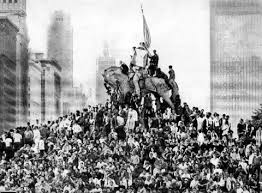In a single 24-hour period the term “Trumpism” went from being a description to a pejorative.

Americans increasingly learn what they know from what they see. Many still can’t seem to grasp the Covid-19 threat, partly because it is not visible and must be confirmed in a lab. The threat seems abstract, hence not quite real. A hoax, perhaps. This principle of using a simple-minded visual guide for all that matters operates in many spheres of life, and even for all of us in the vivid images of delight in the chaos that motivated the mob at the Capitol.
All were white, and clearly delighted with the mayhem created in spaces most of us think of as sacred.
He started his administration on the Capitol steps four years ago ominously invoking the theme of “American carnage.” Almost to the day it will end, his proxies gave us a representation of what that can look like. In a single 24-hour period the term “Trumpism” went from being a description to a pejorative. As its supporters violated the our grandest government building, we saw its face in ways we will never forget: some costumed as warriors, most seemingly aggrieved by a complex world they don’t understand. Others expressed the feeling that they have been pushed to the margins. All were white, and clearly delighted with the mayhem created in spaces most of us think of as sacred.
Trump has stood for very little beyond a virulent nationalism, focusing mostly on an unflagging sense of self-regard. He built his Presidency on the sand of his carefully combed visage, as well as a constant rhetoric of grievances. And it paid off, at least for a while. As Senator Cory Booker noted in one of the best of the delayed January 6 speeches in the Senate, Trump supporters seem to be part of a cult, carrying flags emboldened with a person’s name rather than a more inclusive symbol of hopeful values.
Watching the demonstrators milling around the Capitol, I was struck by the fact they seemed to have little to say; no argument to make, no ideal to uphold. “USA! USA!” and “Take back the steal” was heard most often. I’ve noticed the same pattern in other rallies. Holding a banner or flag is the thing. There appeared to be no war to protest, no law to challenge, no congressional action to dispute. They were there mostly to simply witness for Donald J. Trump: a real-estate speculator turned into a cult figure.
![]()

